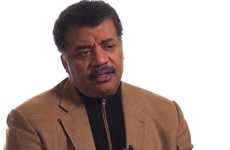
Need Inspiration?
Get inspired by 4,000+ keynote speaker videos & our founder, a top keynote speaker on innovation.
Anil Seth Shines a Light on Research On Consciousness
Mishal Omar — July 20, 2017 — Keynote Trends
Anil Seth is a Professor of Cognitive and Computational Neuroscience at the University of Sussex, who recently gave a TED talk about human consciousness, how it works, and how our understanding of it can have different implications.
The Professor discusses how he is working with people across a range of disciplines – psychiatry, psychology, physics, neurology, virtual reality and even philosophy – to study how consciousness happens. He explains that perception is not simply sensory information that comes into the brain, but that it is just as much (or more) based on perceptual predictions that flow out of the brain. Thus, we don't just passively perceive the world, we actively generate it.
Anil Seth also talks about how if hallucinations are uncontrolled perceptions, then perception "right here and right now is also a kind of hallucination." When we agree on our hallucinations, we call that reality.
There are three implications of his studies on consciousness that Anil Seth outlines: we can mis-perceive the world and ourselves, what it means to be conscious cannot be reduced or uploaded to a software program, and our own individual universe is just one possible way of being conscious.
The Professor discusses how he is working with people across a range of disciplines – psychiatry, psychology, physics, neurology, virtual reality and even philosophy – to study how consciousness happens. He explains that perception is not simply sensory information that comes into the brain, but that it is just as much (or more) based on perceptual predictions that flow out of the brain. Thus, we don't just passively perceive the world, we actively generate it.
Anil Seth also talks about how if hallucinations are uncontrolled perceptions, then perception "right here and right now is also a kind of hallucination." When we agree on our hallucinations, we call that reality.
There are three implications of his studies on consciousness that Anil Seth outlines: we can mis-perceive the world and ourselves, what it means to be conscious cannot be reduced or uploaded to a software program, and our own individual universe is just one possible way of being conscious.
6.5
Score
Popularity
Activity
Freshness
















